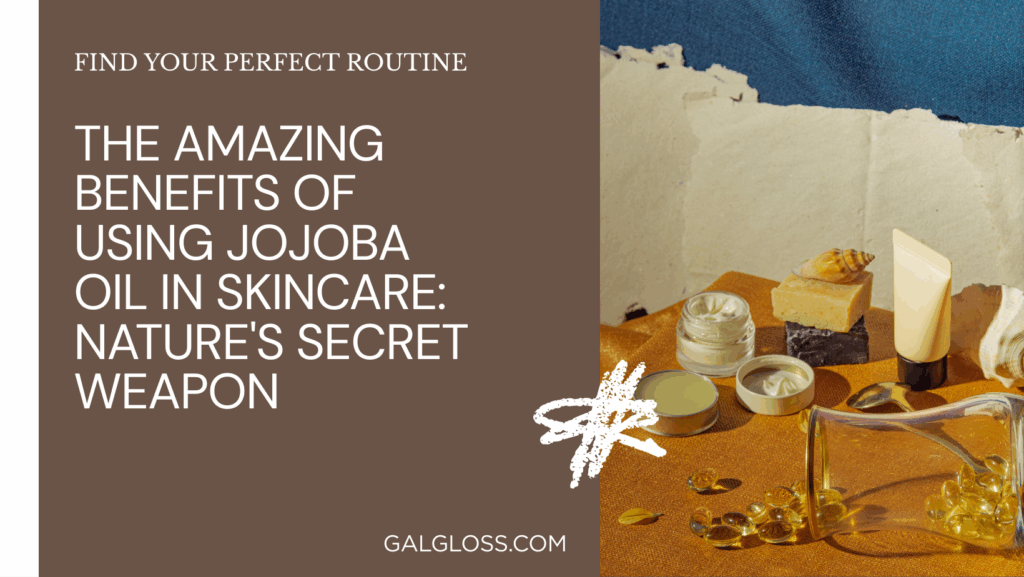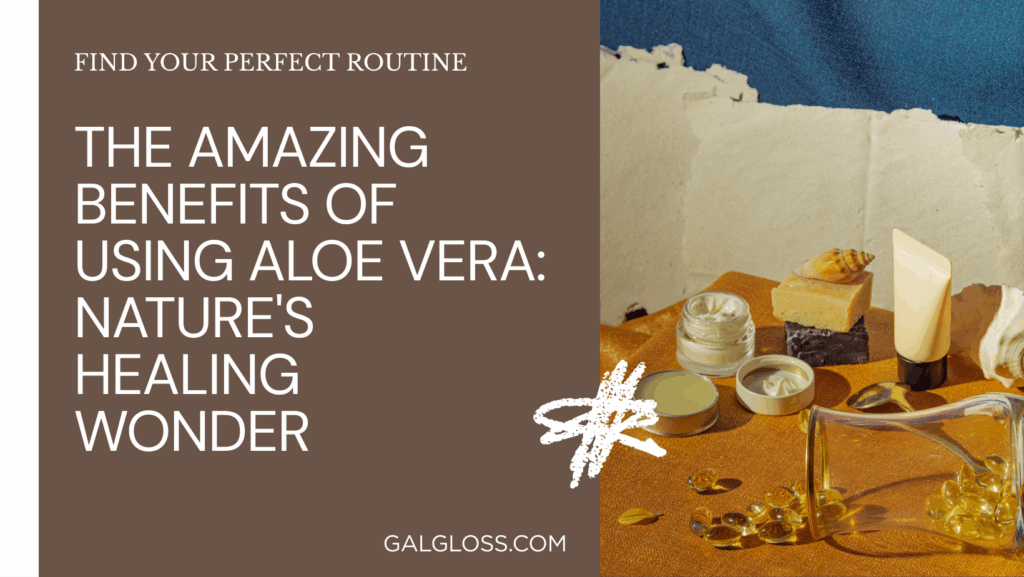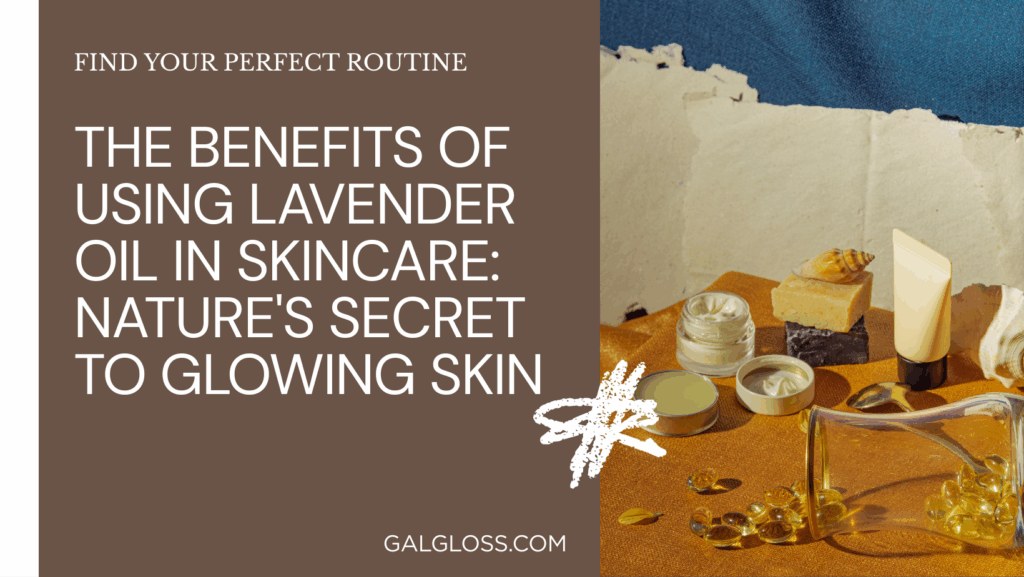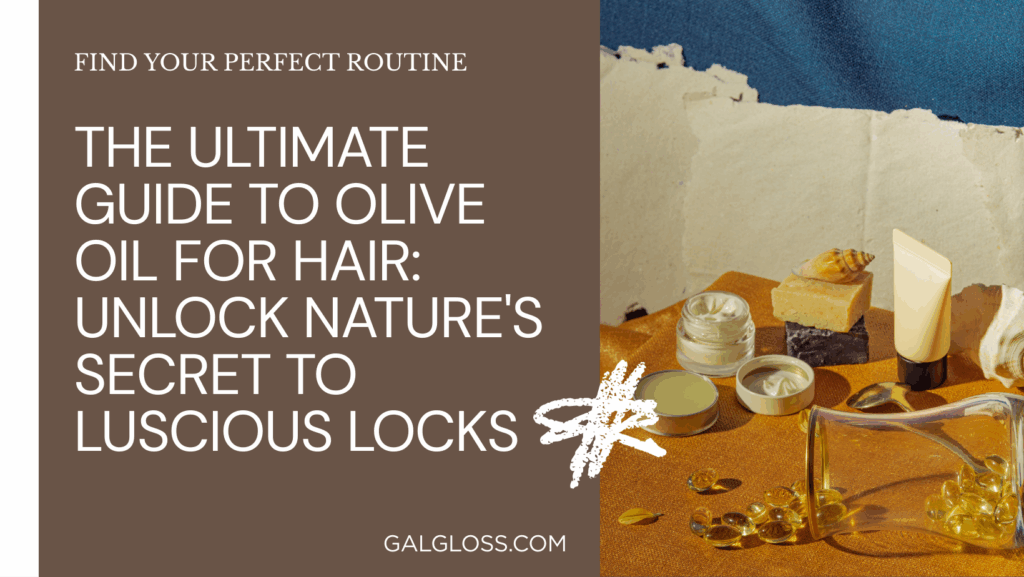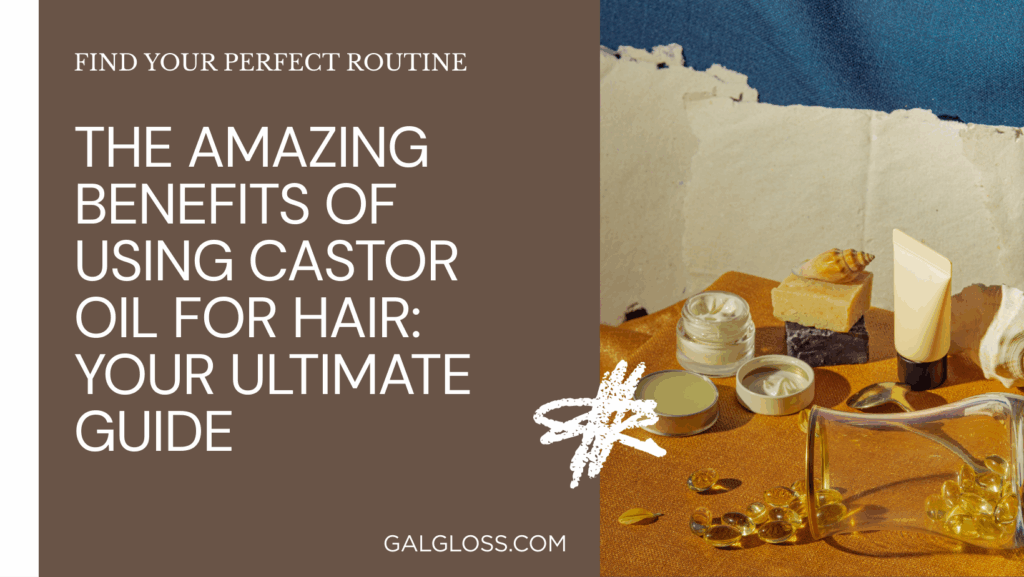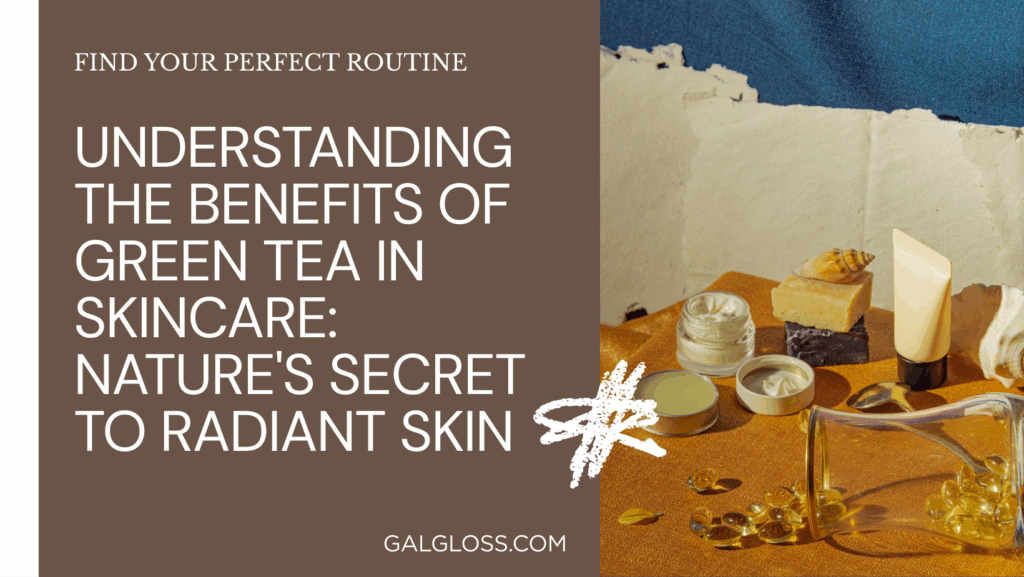Ever wondered why tea tree oil is creating such a buzz in the skincare world? Well, you’re in for a treat! This little bottle of nature’s goodness is like a Swiss Army knife for your skin – it does it all. From zapping zits to soothing dry patches, tea tree oil is the unsung hero your skincare routine might be missing.
What’s the Deal with Tea Tree Oil?
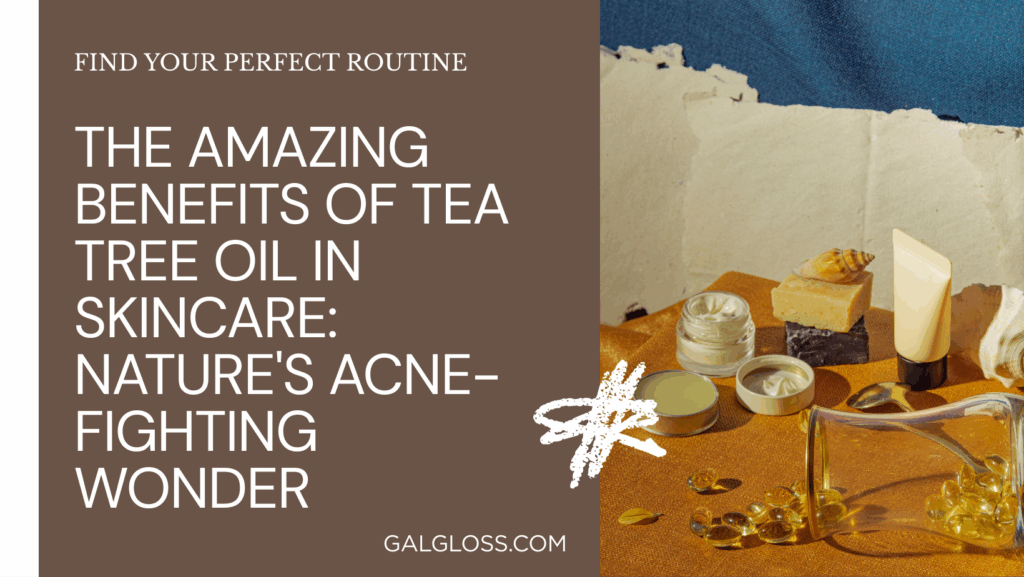
Picture this: you’re in the Australian outback, surrounded by lush greenery. Among the trees, there’s a special plant called Melaleuca alternifolia. For centuries, indigenous Australians have been crushing its leaves to extract a potent oil – yep, you guessed it – tea tree oil.
This isn’t your average cup of tea, folks. Tea tree oil is packed with powerful compounds that make it a natural antiseptic, antibacterial, and anti-inflammatory agent. It’s like nature’s very own skin superhero, swooping in to save the day (and your face).
How Does Tea Tree Oil Work Its Magic?
Let’s get a bit sciency for a sec (don’t worry, I’ll keep it simple). Tea tree oil’s superpower comes from its active compounds, mainly terpinen-4-ol. This fancy-sounding molecule is what gives tea tree oil its antimicrobial mojo.
When you apply tea tree oil to your skin, it’s like sending in a tiny army to fight off bad bacteria. At the same time, it calms down inflammation, which is why it’s so great for angry, red skin. It’s like a one-two punch against skin troubles!
Top 10 Benefits of Tea Tree Oil for Skin
Ready to have your mind blown? Here are the top 10 ways tea tree oil can transform your skin:
- Fights acne and blemishes: Tea tree oil is like kryptonite for acne-causing bacteria. It penetrates deep into pores, clearing out gunk and reducing those pesky pimples.
- Reduces inflammation and redness: Got skin that looks like it’s throwing a tantrum? Tea tree oil can help calm it down, soothing redness and irritation.
- Soothes dry, itchy skin: If your skin feels like the Sahara, tea tree oil can help restore moisture and relieve that annoying itch.
- Balances oily skin: Ironically, this oil can help control excess oil production. It’s all about balance, baby!
- Treats fungal infections: From athlete’s foot to nail fungus, tea tree oil’s antifungal properties make it a natural remedy for these pesky problems.
- Helps heal wounds and cuts: Got a minor scrape? Tea tree oil can help speed up healing and prevent infection.
- Reduces dandruff: Flaky scalp? Tea tree oil can help fight the fungus that often causes dandruff.
- Combats body odor: Its antimicrobial properties make it a natural deodorant. Bye-bye, B.O.!
- Alleviates psoriasis symptoms: While it’s not a cure, tea tree oil can help soothe the itching and inflammation associated with psoriasis.
- Minimizes skin tags: Some people swear by tea tree oil for reducing the appearance of skin tags. (But always check with a doc before trying this!)
How to Use Tea Tree Oil in Your Skincare Routine
Now that you’re sold on tea tree oil’s benefits, let’s talk about how to use it. Remember, this stuff is potent, so a little goes a long way!
Dilution is Key
First things first: never apply pure tea tree oil directly to your skin. It’s too strong and can cause irritation. Always dilute it with a carrier oil like coconut oil or jojoba oil. A good rule of thumb is 1-2 drops of tea tree oil per teaspoon of carrier oil.
Face Masks and Spot Treatments
For a DIY face mask, mix a drop of tea tree oil with a tablespoon of honey. Apply to your face, let it sit for 15 minutes, then rinse off. Hello, glowing skin!
For spot treatments, dab a tiny amount of diluted tea tree oil directly on pimples before bed. Wake up to clearer skin!
Toners and Cleansers
Add a few drops of tea tree oil to your regular toner or cleanser for an antibacterial boost. Just make sure to shake well before each use.
Body Care Applications
For body odor, mix a few drops of tea tree oil with water in a spray bottle for a natural deodorant. For foot fungus, add a few drops to a foot soak.
Potential Side Effects and Precautions
While tea tree oil is generally safe, it’s not without its risks. Here’s what to watch out for:
- Skin irritation: Some people might experience redness or itching. Always do a patch test first!
- Allergic reactions: If you’re allergic to plants in the myrtle family, steer clear of tea tree oil.
- Pregnancy and breastfeeding: There’s not enough research on its safety during pregnancy or breastfeeding, so it’s best to avoid it.
Choosing the Right Tea Tree Oil Products
Not all tea tree oil products are created equal. Here’s what to look for:
- Purity: Look for 100% pure tea tree oil for DIY recipes.
- Concentration: In skincare products, a concentration of 5-10% is usually effective and safe.
- Packaging: Dark glass bottles help protect the oil from light degradation.
Some top-rated tea tree oil skincare products include:
- The Body Shop Tea Tree Oil
- Thursday Plantation 100% Pure Tea Tree Oil
- The Ordinary 100% Organic Cold-Pressed Rose Hip Seed Oil
DIY Tea Tree Oil Skincare Recipes
Ready to channel your inner skincare chemist? Try these simple DIY recipes:
Simple Face Toner
- 1/4 cup witch hazel
- 5 drops tea tree oil
- 3 drops lavender oil (optional, for scent)
Mix ingredients in a small bottle. Shake well before each use and apply with a cotton pad.
Acne-Fighting Spot Treatment
- 1 tsp aloe vera gel
- 2 drops tea tree oil
Mix and apply directly to pimples before bed.
Soothing Bath Soak
- 1 cup Epsom salt
- 5 drops tea tree oil
- 3 drops eucalyptus oil
Add to warm bath water and soak for 20 minutes. Your skin (and mind) will thank you!
Frequently Asked Questions About Tea Tree Oil in Skincare
Q: Can I use tea tree oil if I have sensitive skin? A: It’s possible, but start with a very diluted solution and do a patch test first.
Q: How often should I use tea tree oil on my face? A: For most people, 1-2 times a day is sufficient. Listen to your skin and adjust as needed.
Q: Can tea tree oil remove dark spots? A: While it’s not specifically known for this, its anti-inflammatory properties might help reduce the appearance of dark spots over time.
Q: Is tea tree oil good for wrinkles? A: Tea tree oil isn’t typically used for anti-aging, but its ability to promote healthy skin can contribute to a more youthful appearance.
Q: Can I mix tea tree oil with my moisturizer? A: Yes, but start with just a drop or two in a full bottle of moisturizer to avoid irritation.
Conclusion: Is Tea Tree Oil Worth the Hype?
After diving deep into the world of tea tree oil, I’d say the answer is a resounding yes! This natural wonder offers a plethora of benefits for your skin, from fighting acne to soothing irritation. It’s versatile, generally safe when used correctly, and can be a game-changer in your skincare routine.
Remember, though, that everyone’s skin is different. What works wonders for one person might not be the holy grail for another. The key is to start slow, listen to your skin, and adjust as needed.
So, ready to give tea tree oil a shot? Whether you’re battling breakouts, looking to soothe dry skin, or just want to add a natural boost to your skincare regimen, tea tree oil might just be the secret ingredient you’ve been searching for.
Go ahead, unleash the power of this Aussie skin savior. Your skin might just throw a thank-you party – and you’re invited!
